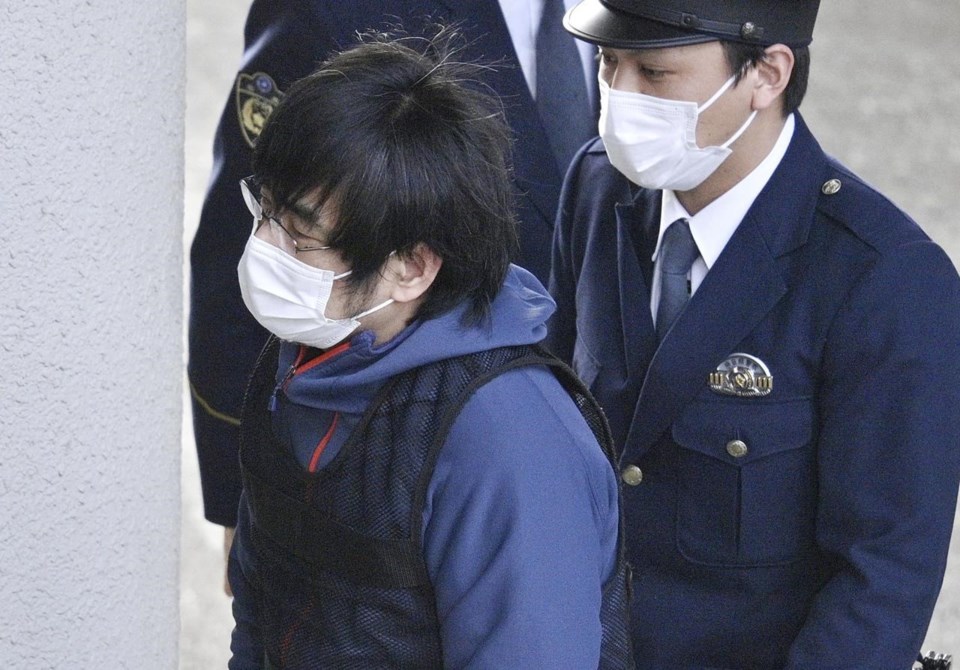TOKYO (AP) — Japanese prosecutors formally charged the suspect in the assassination of former Prime Minister Shinzo Abe with murder, Japanese media reported Friday.
Tetsuya Yamagami was arrested immediately after allegedly shooting Abe with a homemade gun as the former leader was making a campaign speech in July outside a train station in Nara in western Japan.
Later that month, Yamagami was sent to an Osaka detention center for a nearly six-month mental evaluation, which ended Tuesday. Yamagami is back in police custody in Nara.
Prosecutors said results of his mental evaluation showed he is fit to stand trial. Yamagami was also charged with violating a gun control law.
Police have said Yamagami told them that he killed Abe, one of Japan’s most influential and divisive politicians, because of Abe’s apparent links to a religious group that he hated. In his statements and in social media postings attributed to him, Yamagami said he developed a grudge because his mother had made massive donations to the Unification Church that bankrupted his family and ruined his life.
Some Japanese have expressed sympathy for Yamagami, especially those who also suffered as children of followers of the South Korea-based Unification Church, which is known for pressuring adherents into making big donations and is considered a cult in Japan.
Thousands of people have signed a petition requesting leniency for Yamagami, and others have sent care packages to his relatives or the detention center.
The investigation into the case has led to revelations of years of cozy ties between Abe’s governing Liberal Democratic Party and the church since Abe’s grandfather, former Prime Minister Nobusuke Kishi, helped the church take root in Japan in the 1960s over shared interests in conservative and anti-communist causes.
Current Prime Minister Fumio Kishida’s popularity has plunged over his handling of the church controversy and for insisting on holding a rare, controversial state funeral for Abe.
The Associated Press




